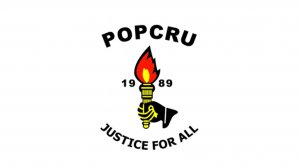Police officers risk their lives to fulfil their mandate to their country every day, but the alarming rate at which they are being killed is cause for concern.
The first quarter’s crime statistics released by Police Minister Bheki Cele painted a grim picture for South African police officers, revealing that as many as 31 police members were murdered between April and the end of June this year – an average of one officer every three days. And since June, we have seen several more deadly attacks on police, both while on and off duty, with many losing their lives.
This gradual upsurge is unacceptable and through the years, police management has promised measures to bolster the safety of police officers. But as more wreaths are being laid for fallen officers, greater investments in their safety and protection are urgently required.
Unfortunately, in many cases, police officers are targeted for their firearms, as well as for their ties to high-profile cases or other investigations. We have also received reports of a disturbing new trend where gang members are killing police officers as part of their initiation.
To combat these trends, we must ensure that crime intelligence services are adequately resourced and that they share information effectively. Next, our police officers must receive the housing allowances required to ensure that they are able to find and live in safe and secure homes. Furthermore, we must also equip our police service with the resources and manpower needed to increase their presence and visibility in our communities, and deter criminals from illegal activities.
The SAPS is constantly understaffed. This, together with a lack of resources and proper training, limits their ability to effectively combat crime. Additionally, there is a continuous shortage of boots on the ground, as the current SAPS structure is top-heavy and too many members are left to sit in offices rather than patrolling the streets.
Then consider that MEC Reagen Allen of the Western Cape reports that the national police-to-population ratio stands at one officer for every 413 residents. But in many disadvantaged areas with soaring levels of crime and violence, this ratio is even lower, with one officer for as many as 700 or even 800 residents.
Additionally, it is important to recognise that South Africa is ranked as the fifth most dangerous country globally and has the highest crime rate in Africa with a crime index of 75.5, reflecting the high demands placed on our police. And as economic pressures and social dissatisfaction grow, the situation is likely to only get worse.
Ultimately, this means that police are often simply outmatched by criminals, placing them and their lives at extreme risk. Currently, however, the legal consequences for killing police officers remain insufficient to effectively prevent criminals from targeting them for attack, as demonstrated by the gradual upsurge in police deaths.
Today, if criminals are successfully brought to task and are found guilty of killing a police officer, they will face a murder charge which is punishable by a sentence of life imprisonment. According to South African law, an individual facing a life sentence is then eligible for parole after 25 years, which means that criminals often go free. If it is their first offence, they only need to serve 15 years in prison.
In other words, there is no real justice for slain police officers.
Yet as the police are mandated to protect citizens and prevent crime, a threat against them is a threat against the safety of all South Africans, and a treasonous threat to our constitutional democracy.
Treason can be defined as the unlawful act of violating or endangering the security of the state. And by this definition, killing police officers, rejecting the rule of law, and working against the security of our state is most certainly a treasonous act. The deaths of police officers detracts from the SAPS’ ability to execute its mandate and safeguard our communities, posing a significant danger to South African citizens.
By classifying the killing of a police officer as both murder and treason, we hope to send a strong warning to all criminals to respect law enforcement, and that harsh penalties await any who threaten these vital public servants.
As a result, POPCRU has declared that police killings ought to be declared treason. We call on the state and legislators to demand harsher punishments for offenders and ensure justice for police members. We can no longer be passive in our approach and sit idly as our members are being slaughtered. Now is the time for action to ensure their protection, punishing perpetrators to the full extent of the law, and making all criminals think twice before threatening our police officers.
Written by Dr Zizamele Cebekhulu-Makhaza, President of South Africa’s Police and Prisons Civil Rights Union (POPCRU)
EMAIL THIS ARTICLE SAVE THIS ARTICLE ARTICLE ENQUIRY
To subscribe email subscriptions@creamermedia.co.za or click here
To advertise email advertising@creamermedia.co.za or click here











